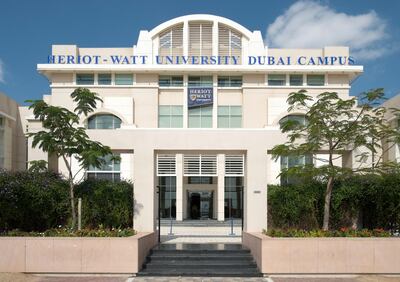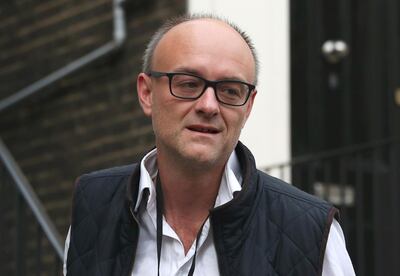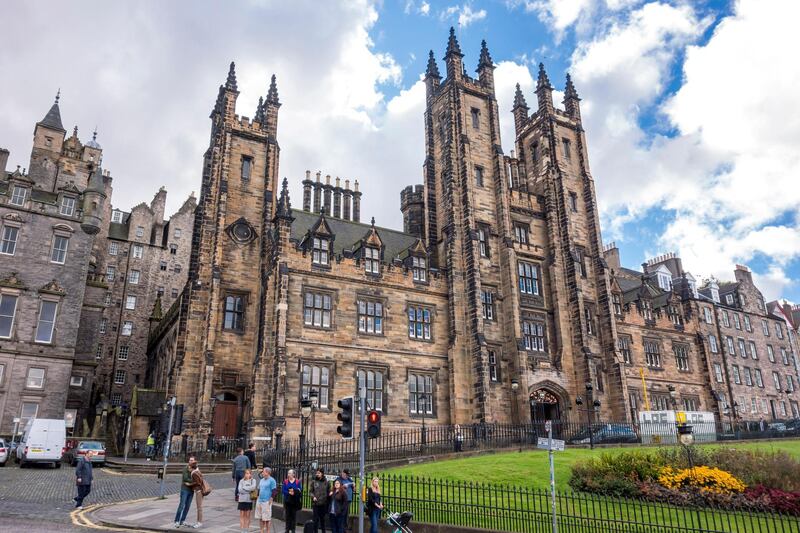Scottish universities are concerned there could be an exodus of foreign students and academics after Brexit.
Scotland’s government has called for a European student exchange programme to continue even if no withdrawal agreement is reached with the EU.
Scotland’s higher education minister Richard Lochhead and his Welsh counterpart Kirsty Williams are seeking assurances over the future of the Erasmus+ scheme, which allows students from EU countries to temporarily study in another state in the bloc as part of their university course.
It is estimated that more than 15,000 students and staff from Scotland took part in the EU-led scheme between 2014 and 2018.
The ministers said it was unacceptable that with 12 weeks to go until the UK government plans to take the UK out of the EU, the future of the programme remains uncertain.
"Thousands of Scottish students benefit from Erasmus+ yearly, proportionally more than from any other country in the UK,” Mr Lochhead wrote in a letter to the UK government.
"The Scottish and Welsh Governments are clear that we must remain a full participant in Erasmus+.”
The Department for Education said that it was exploring alternatives to take over the scheme.
"The UK Government has also repeatedly made clear that it values international exchange and collaboration in education, which is why we are exploring participation in the successor scheme and preparing for a range of potential outcomes," a spokeswoman said.
The future of the Erasmus scheme is just one of many concerns Scottish educators have about the UK’s impending exit from the EU, currently scheduled for October 31.
As it stands, Scotland has a reputation as having one of the best higher education systems in the world.
The University of Edinburgh is consistently ranked in the top 50 in the QS World University Rankings, while Edinburgh-based Heriot Watt university, named International University of the Year in 2018, was the first campus of an overseas university to open in Dubai International Academic City.

Alongside its reputation for academic excellence, Scotland is an attractive destination for EU students looking to study in the UK because tuition fees, subsidised by the Scottish government, are free or much lower than at universities in England, Wales and Northern Ireland.
Around 7.9 per cent of the undergraduates at Scottish universities are EU nationals, while around a fifth of teaching staff are from the EU, according to figures from the Scottish Funding Council (SFC).
However, after Brexit, EU students are likely to lose the subsidies and pay the same rate as international students from outside of Europe.
The Scottish government has extended the guarantee of free tuition for eligible EU nationals starting in the 2019-2020 academic year but the future is unclear after that.
Another problem affecting Scottish universities is uncertainty over visa rules. If there is a no withdrawal agreement agreed with the EU, then a university student will by default receive only a three-year visa. Courses in England are usually three years compared to four in Scotland.
Dr Esther Mijers, senior lecturer in Scottish History at the University of Edinburgh, said the continued uncertainty for students and questions over access to European research funding, could put off prospective students and academics.
"I think the students that were already keen to come will still come but possibly their younger brothers and sisters will consider other opportunities," Dr Mijers told The National.
“On top of that, we could start losing international staff - they don’t have to come to the UK. People have choices and that is going to make universities more inward looking, which goes directly against what they should stand for,” she added.
A recent study found that there was an 11 per cent rise in the number of EU academics leaving the Russell Group, an elite group of universities in the UK, between 2015/2016 and 2016/2017. However, it is not possible to say whether this is a result of the EU referendum result in 2016.
British prime minister Boris Johnson, who has promised to take the UK out of the EU with or without a deal, has sought to allay some concerns by introducing fast-track visas for the world’s top scientists, engineers and mathematicians.

He sent top government aide and Brexiteer campaigner Dominic Cummings to relay his message to top scientists. Mr Cummings wrote an essay in 2013 saying the UK should seek to reinvent itself as “the leading country for education and science” in an effort to find its “post-imperial role”.
However, the news was met with some scepticism by those in the meeting, including developmental neurologist Dorothy Bishop, who told Politico she felt that Mr Cummings lacked an understanding of the importance of the UK's scientific links with the EU.
Dr Stuart Fancey, director of research and innovation at the SFC – a body which funds universities and colleges in Scotland, said it was imperative that EU students and academics feel welcome in the UK.
"In some disciplines, EU nationals make up a really large fraction of the research effort. Therefore, part of why Scotland and by extension the UK is well considered overseas is because we have a diverse and cosmopolitan research community," he told The National.
“We want that to continue so we will always make the argument that Scotland is an attractive place to study, work and make a life.”






